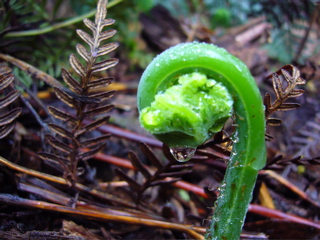
http://news.bbc.co.uk/2/hi/south_asia/7896943.stm
By Barbara Plett
BBC News, Lahore
It’s one o’clock in the morning and the night is pounding with
hypnotic rhythms, the air thick with the smoke of incense.
I’m squeezed into a corner of the upper courtyard at the shrine of
Baba Shah Jamal in Lahore, famous for its Thursday night drumming
sessions.
It’s packed with young men, swaying to the music, and working
themselves into a state of ecstasy.
This isn’t how most Westerners imagine Pakistan, which has a
reputation as a hotspot for Islamist extremism.
Now some in the West have begun asking whether Pakistan’s Sufism could
be mobilised to counter militant Islamist ideology and influence.
Lahore would be the place to start: it’s a city rich in Sufi tradition.
At the shrine of Data Ganj Bakhsh Hajveri, musicians and singers from
across the country also gather weekly, to perform qawwali, or Islamic
devotional singing.
Qawwali is seen as a key part of the journey to the divine, what Sufis
call the continual remembrance of God.
“When you listen to other music, you will listen for a short time, but
the qawwali goes straight inside,” says Ali Raza, a fourth generation
Sufi singer.
“Even if you can’t understand the wording, you can feel the magic of
the qawwali, this is spiritual music which directly touches your soul
and mind as well.”
But Sufism is more than music. At a house in an affluent suburb of
Lahore a group of women gathers weekly to practise the Sufi
disciplines of chanting and meditation, meant to clear the mind and
open the heart to God.
One by one the devotees recount how the sessions have helped them deal
with problems and achieve greater peace and happiness. This more
orthodox Sufism isn’t as widespread as the popular variety, but both
are seen as native to South Asia.
‘Love and harmony’
“Islam came to this part of the world through Sufism,” says Ayeda
Naqvi, a teacher of Islamic mysticism who’s taking part in the
chanting.
“It was Sufis who came and spread the religious message of love and
harmony and beauty, there were no swords, it was very different from
the sharp edged Islam of the Middle East.
“And you can’t separate it from our culture, it’s in our music, it’s
in our folklore, it’s in our architecture. We are a Sufi country, and
yet there’s a struggle in Pakistan right now for the soul of Islam.”
That struggle is between Sufism and hard-line Wahhabism, the strict
form of Sunni Islam followed by members of the Taleban and al-Qaeda.
It has gained ground in the tribal north-west, encouraged initially in
the 1980s by the US and Saudi Arabia to help recruit Islamist warriors
to fight the Soviets in Afghanistan.
But it’s alien to Pakistan’s Sufi heartland in the Punjab and Sindh
provinces, says Sardar Aseff Ali, a cabinet minister and a Sufi.
“Wahhabism is a tribal form of Islam coming from the desert sands of
Saudi Arabia,” he says. “This may be very attractive to the tribes in
the frontier, but it will never find resonance in the established
societies of Pakistan.”
So could Pakistan’s mystic, non-violent Islam be used as a defence
against extremism?
An American think tank, the Rand Corporation, has advocated this,
suggesting support for Sufism as an “open, intellectual interpretation
of Islam”.
There is ample proof that Sufism remains a living tradition.
In the warren of Lahore’s back streets, a shrine is being built to a
modern saint, Hafiz Iqbal, and his mentor, a mystic called Baba Hassan
Din. They attract followers from all classes and walks of life.
‘Atrocities’
The architect is Kamil Khan Mumtaz. He describes in loving detail his
traditional construction techniques and the spiritual principles they
symbolise.
He shakes his head at stories of lovely old mosques and shrines pulled
down and replaced by structures of concrete and glass at the orders of
austere mullahs, and he’s horrified at atrocities committed in the
name of religion by militant Islamists.
But he doubts that Sufism can be marshalled to resist Wahhabi
radicalism, a phenomenon that he insists has political, not religious,
roots.
“The American think tanks should think again,” he says. “What you see
[in Islamic extremism] is a response to what has happened in the
modern world.
“There is a frustration, an anger, a rage against invaders, occupiers.
Muslims ask themselves, what happened?
“We once ruled the world and now we’re enslaved. This is a power
struggle, it is the oppressed who want to become the oppressors, this
has nothing to do with Islam, and least of all to do with Sufism.”
Ayeda Naqvi, on the other hand, believes Sufism could play a political
role to strengthen a tolerant Islamic identity in Pakistan. But she
warns of the dangers of Western support.
“I think if it’s done it has to be done very quietly because a lot of
people here are allergic to the West interfering,” she says.
“So even if it’s something good they’re doing, they need to be
discreet because you don’t want Sufism to be labelled as a movement
which is being pushed by the West to drown out the real puritanical
Islam.”
Back at the Shah Jamal shrine I couldn’t feel further from puritanical
Islam. The frenzied passion around me suggests that Pakistan’s Sufi
shrines won’t be taken over by the Taleban any time soon.
But whether Sufism can be used to actively resist the spread of
extremist Islam, or even whether it should be, is another question.
Story from BBC NEWS:
http://news.bbc.co.uk/go/pr/fr/-/2/hi/south_asia/7896943.stm
Published: 2009/02/24 05:55:03 GMT


